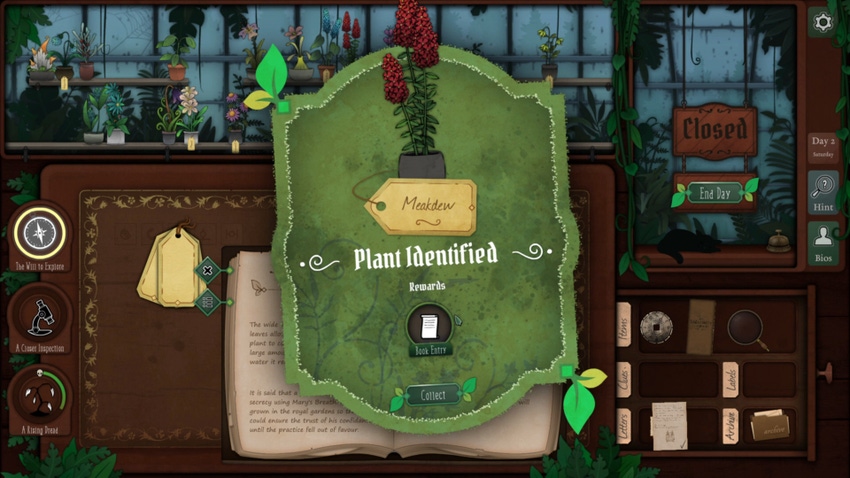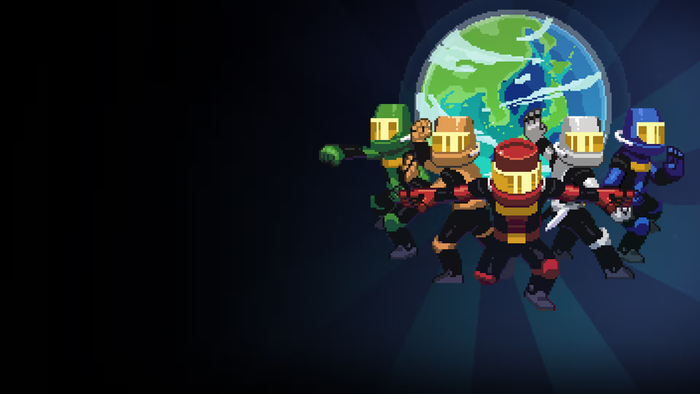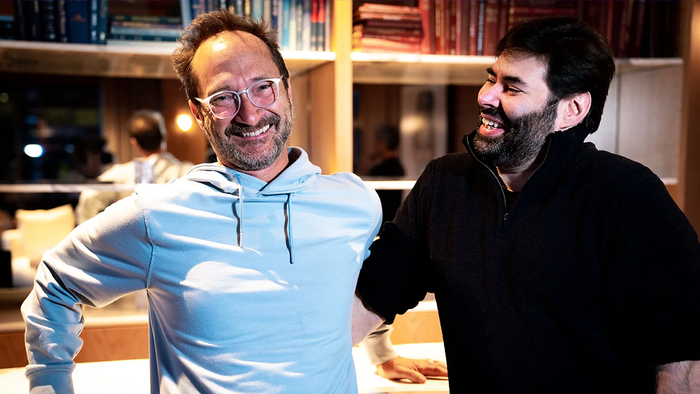Game Developer's Best of 2022: Holly Green's top five games
If you play games for the story, the past twelve months have some standout titles.

2022 was a great year for games. Or maybe it was terrible. I don’t know. Taste is subjective, and there’s not a single “best of” list in the games biz that isn’t limited by time and exposure. Not to mention, the milestones by which we measure time are pretty arbitrary too. It seems odd to gauge the merit of games within those parameters, given how poorly they reflect the medium's progress.
Now that I’ve done a Neil DeGrasse Tyson all over this post let’s take a moment to look back on some of the best of what 2022 had to offer. FromSoftware’s Elden Ring was the belle of the ball, bringing together the gaming community in ways we haven’t seen for years. Players were energized by the camaraderie not only in the difficulty of the game’s combat experience but in deciphering its elusive backstory. Closing out the end of the year was Pentiment, a smaller-scale project from Obsidian Entertainment that used the studio’s signature narrative techniques to deliver an intoxicating tale of medieval intrigue. And Roadwarden, with its branching RPG format, quietly racked up critical acclaim on sheer word of mouth alone. If you play games for the story, the past twelve months have some standout titles.
Pokémon: Arceus Legends

In the scheme of things, Pokémon games can’t compete on most end-of-the-year lists—they’re fun, but they’re hardly innovative, and on a technical level, they can be rough to look at and exceptionally glitchy to play. Still, Pokémon: Arceus Legends, a spin-off title, managed to steal the show from Pokémon Scarlet and Violet this year, despite being released several months prior, due to its superior mechanics—in Arceus, you don’t have to battle a Pokémon to catch it, you can aim a Pokeball and do it manually instead. This seemingly minor change is such a hit that fans are calling for an update to add the option to Violet and Scarlet, a petition I agree with. Pokémon is simply less tedious when there are more ways to catch them all.
Grounded

While I’ve been playing Grounded since long before its official release, it was great to see the Honey I Shrunk the Kids-style building sim get its day in the spotlight this year. Its bigger-than-life backyard and the bugs and lush plantlife within are a charming comparison to the danger, adventure, and challenge of being a little kid in a big world. Personally, my journey through the game has been a bit slower, as the solo experience is more of a challenge than playing with others. Nonetheless, as my character slowly grows her selection of weapons, structures, armor, and other helpful survival tools, I’m still so taken with how well this fun premise breathes new life into the builder genre.
Strange Horticulture

I am a sucker for game maps and fantasy biology, and Strange Horticulture is charmingly inventive when it comes to both. Set in an apothecary’s shop, where customers ask for plants based on their current ailments or problems, players track down rare and exotic plants by way of cryptic map clues. The plants are then added to their personal stash, where they can be identified with descriptions from the locals who seek out their services. Though the flowers aren’t real, their beauty very much is; each specimen is vivid and richly colored, ornamental even as their use is primarily medicinal. Adding weight to the package is an ongoing tale that unfolds through anonymous messages and clandestine locations on the map, a dash of intrigue that gives the game momentum even as it becomes one of your cozy day favorites.
Roadwarden

As I wrote in our Top 10 round-up this year, Roadwarden was captivating for its ability to make sure every decision counts. Where the game’s many stat-dependent choices were available, so too was the reward of new experiences, dialogue or insight into its enigmatic world. Perhaps just as captivating though was its folksy, sepia-toned pixel art and the feeling of antiquity as you turn the game’s pages. But there’s also a poetry in the game’s description of its wild forests and fantastic beasts that reminds me of Tolkien or C.S. Lewis—a lofty comparison but an apt one given how lost I was in its prose.
Neon White

Neon White, a puzzle-parkour platform runner-gunner (whew, try saying that three times fast) I wrote about in our top ten at Game Developer this year, is one of those games I don’t feel cool enough to play. But luckily, I never feel too unskilled—somehow, its learning curve has a perfect balance of length and incremental escalation, turning up the heat at just the right speed in bite-sized levels that end in triumph long before they have a chance to wear out their welcome. And while I’m not enamored at some of the more anime-like parts of the game’s formula, its N64-era vaporwave vibes are a salve. I’ve never been so relaxed about such a stressful, high-paced game.
Pentiment

As I wrote in our top ten round-up this year, there’s a lot to like about Pentiment. For me, the best part was perhaps how typography was used to express class, profession, and background and how that reflected the accessibility of education during the period the game depicts. I also appreciated how the format, which presented each scene as set within a manuscript, allows for footnotes and asides that add context to the significant figures that shaped the era's culture and conversations. The presentation improved my comprehension of a time period that I’ve always struggled to envision cohesively, allowing me to see a way of life rather than an abstract series of historical facts. For me, Pentiment is so much more than an intriguing murder mystery—it’s a model for how period pieces can be effective educators.
Elden Ring

Playing Elden Ring this year was almost a humbling experience. Not because its environments were so beautiful or its battles and boss fights so punishing, but because I wanted it so much despite how much it didn’t want me.
And by that, I mean I’m impressed with how little the makers of Elden Ring care to explain themselves. The fifth of FromSoftware’s famously difficult action RPGs, the game neither holds your hand nor expects you to solve all its problems.
Which is not to say that the Tarnished does not play a key role in the story of Elden Ring. After all, by the story’s end, they become an Elden Lord capable of transforming the world as they see fit. But amid the whims of the Greater Will, the warring demigods, and the eternal implications of their fate, you get the sense that whatever happens in the Lands Between, the world is much bigger and richer than one person can witness. Everyone has a story. Every foe is formidable. And the world is not waiting for you to save it. Your earnest need for resolution will be met with indifference, and the game will not court your vanity.
Perhaps, after all these years of open-world bloat, what players really wanted was a universe that didn’t need them so much. The lack of certain design conventions, like map markers and mission journals, feels freeing. So, too, does the game’s moral ambiguity. It’s refreshing to play a game with no clear heroes or saviors, where the consequences are unpredictable and devastating and, above all, a message that while you may be useful to the mechanisms of fate, in the scheme of things, you are nothing. After years of playing power fantasies, I guess I just needed to feel small.
About the Author(s)
You May Also Like













